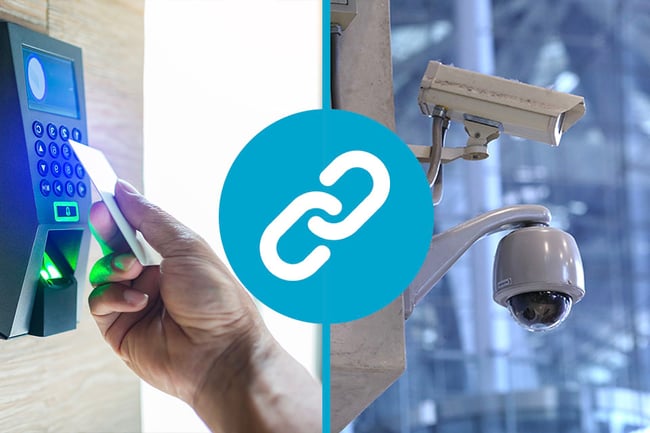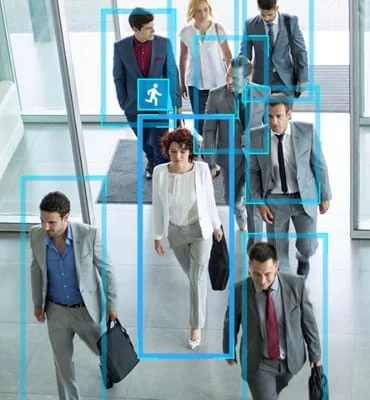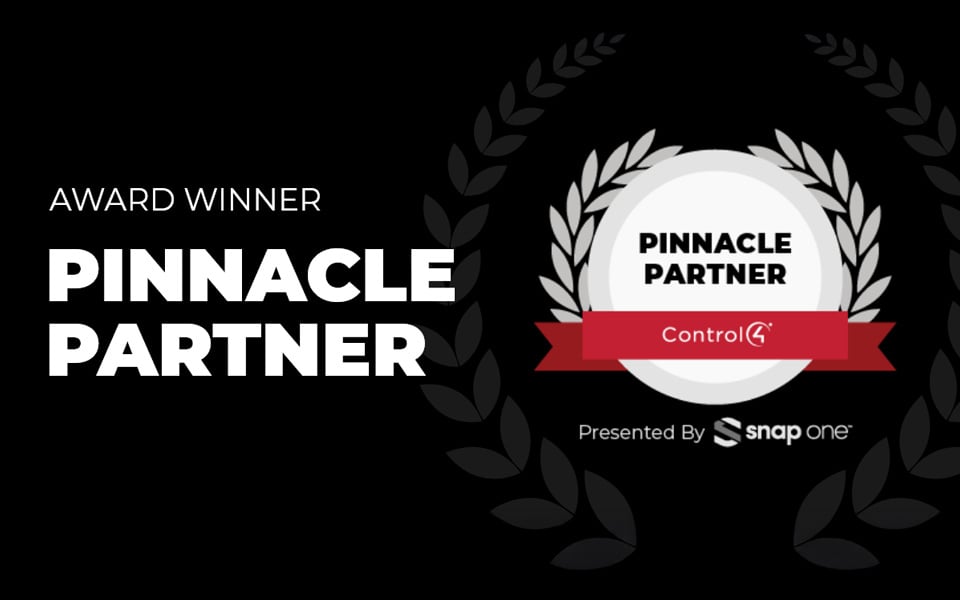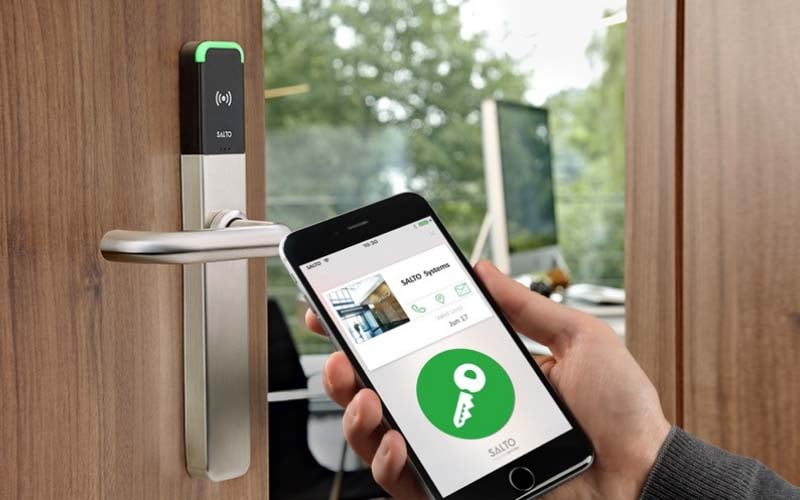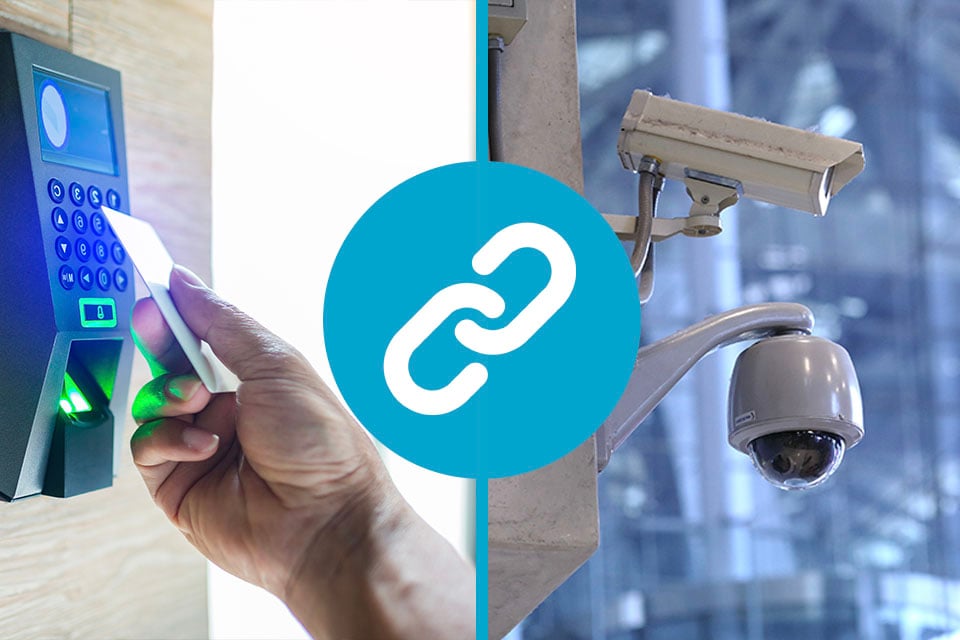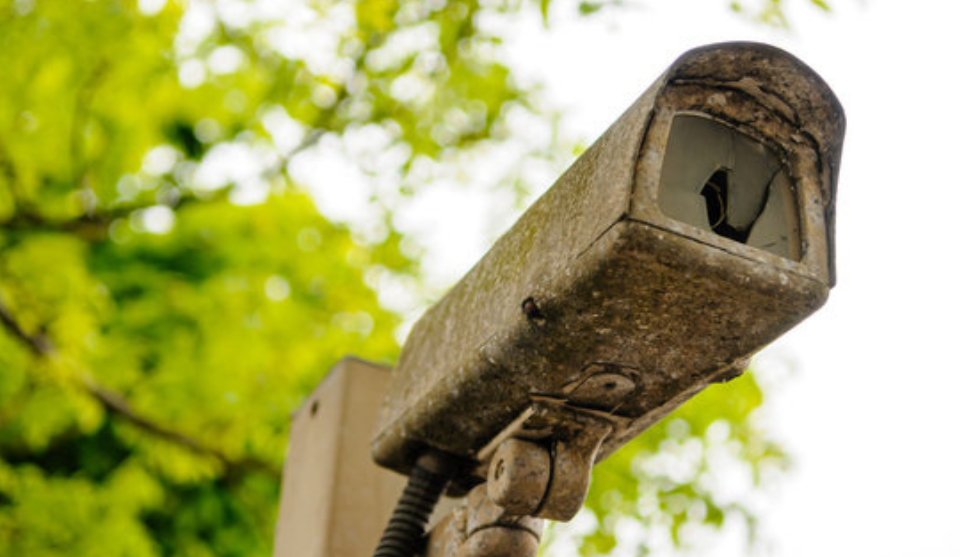Every building faces its own unique security challenges. From out-of-hours cleaners to blind spots and hard-to-reach zones; there’s simply no ‘one-size-fits-all’ when it comes to designing a comprehensive CCTV strategy.
That’s where video analytics step in. Alongside the trend in automated, AI-driven consumer technology, CCTV video analytics have become an essential addition to any great security system, enabling operators to monitor their premises in a targeted and instance-specific way.
Jump To
- What Are CCTV Video Analytics?
- How Do CCTV Video Analytics Work?
- What Are the Benefits of CCTV Video Analytics Software?
- How Can I Use Video Analytics for My Home?
- How Can I Use Video Analytics in My Business?
- Final Thoughts
The truth is: this software is one of the most significant advancements in the security industry in recent years, but its potential is STILL only just being discovered by operators across the nation.
If you’re looking for a super effective, efficient and operational CCTV system in 2024, you need video analytics. That’s the bottom line. In this blog we’ll take a deeper look into why.

What Are CCTV Video Analytics?
Video analytics are a type of software designed to automatically analyse video content in real-time. From a CCTV perspective, this technology can identify an endless range of actions and activities, from an individual wearing concealing clothing to a group of people crowding in a certain area - without needing a dedicated operator on-hand 24/7.
The ultimate goal of this AI is to streamline threat detection and replace the outdated self monitoring approach of having a dedicated person watching over the footage at all times. With video analytics, users get a machine that never sleeps, never calls in sick, doesn’t need a salary and gives everything 100% of its attention, around the clock.
Video Analytics can be introduced to existing CCTV systems using software and a server/cloud server, to turn a standard CCTV system into a “smart” system. For example, when a person enters a certain part of the CCTV image between set timings, the system will notify the user (via an email or push notification) and ‘tag’ the footage on the system so you can quickly search for such events retrospectively.
Initially, this SmartSearch feature was considered to be the “holy grail” of CCTV X AI innovation. It enabled operators to search across their entire archive for specific events or persons of interest with quick, easy and detailed search queries like date, number plate or even specific clothing colours. Now though, the use of video analytics is far more advanced, supporting businesses in all aspects of their security and operations, something we’ll cover deeper later on.

How Do CCTV Video Analytics Work?
CCTV video analytics software constantly analyses live camera footage using machine learning algorithms to detect programmed, instance-specific triggers based on motion, lighting changes, colour or artificial intelligence.
This technology can be used to identify persons of interest, un-uniformed individuals, out-of-hours motion or even just suspicious behaviour like loitering and crowding. If a prohibited activity is recognised in the camera’s field of view, the system will raise an instant alert for real-time response.
There are three main types of video analytics: fixed algorithm analytics, artificial intelligence learning algorithms and facial recognition systems.
Fixed Algorithm Video Analytics
Using rule-based programming, fixed algorithms are designed to recognise certain behaviours through a process of elimination. This could include alerting to actions like moving in the wrong direction along a hallway, trying to open a locked door or littering.
This technology presents a number of limitations as the performance of the analytics is limited to what the “ask” is programmed as by the software engineers, meaning if certain actions or objects don’t conform, they’re missed by the algorithm and are therefore not detected. Imposing too many rules can also compromise the software’s accuracy.
Artificial Intelligence Algorithms
Artificial Intelligence Algorithms have the same aim as fixed algorithm analytics, however they work in a very different way. Rather than using your typical “if/then” rules, learning algorithms begin as a blank canvas, then once connected to a camera, they learn what a typical view for that camera looks like, day-by-day, weekday to weekend and even hour by hour. After a few weeks of gathering this information, the system will begin to raise alerts to inconsistent or abnormal behaviours on screen.
Some providers will advertise artificial intelligence but their technology in reality is very poor, so make sure that you do your research and ask for demonstrations or proof of concepts if this is an area you wish to explore.
Facial Recognition CCTV Analytics
An extension of Artificial Intelligence is facial recognition. This software is used frequently in retail or public CCTV systems to flag persons of interest like known offenders or former employees.
So how does it work? Facial recognition systems identify the biometrics of the face to find a match in the system. If a match is identified, the system will raise an alert to the operator for an instant response. Traditionally, facial recognition software required a good amount of lighting and a static background. However, more recent versions have proved to work under poor lighting conditions and moving backgrounds.
What Are the Benefits of CCTV Video Analytics Software?
Video analytics are designed to boost the functionality of CCTV, both from a security and operational standpoint. Using this technology, home and business owners can power their cameras with automatic notifications that make monitoring and responding to events easier, quicker and more cost-effective.
In the following section, we’ll look at the most prevalent benefits that make video analytics a worthwhile investment for any good CCTV system.
CCTV Analytics Save on Physical Security Staff
Typically, CCTV systems have been monitored reactively - meaning the footage is only used once an event has already occurred. The alternative to this process was to pay a physical on-site CCTV operator to monitor each camera, like the CCTV operations we commonly see on television and in films.
Video analytics enable users to take a more proactive approach to monitoring. Operators are able to identify possible threats or health and safety violations in real-time, taking a huge amount of pressure off security staff as well as removing the need to employ dedicated personnel to constantly review footage.
Video Analytics Leave Less Room for Error & Aid Accurate Decision Making
Operators can detect incidents very accurately and early with video analytics. When you begin adding in multiple video streams, long shifts and very busy CCTV footage, monitoring becomes a sizeable task.
In the 1990s, Jim Aldridge conducted research for the UK Police Scientific and Development Branch (PSDB) which showed that as more monitors are added to an operator’s workstation, detection rates go down. With the use of video analytics operators receive additional detection support without needing to be constantly connected to their cameras - across multiple rooms, cameras and locations.
CCTV Analytics Support Proactive Crime Prevention
With automatic alerts and real-time notifications, video analytics offer operators a situational awareness of suspicious activity on their premises. By raising alerts for loitering, crowding or parked cars, users can be notified of unusual behaviour before it turns into a crime - allowing for the operator to respond quickly, proactively and safely through audio challenges, or the dispatch of emergency services.
Similarly, with perimeter monitoring analytics users can instantly detect unexpected trespassing on the premises as it happens - potentially preventing the financial damages attached to a physical break-in (shattered windows, broken locks) entirely.
Analytics Make CCTV Easy to Use
Although video analytics works off a complex range of learning and algorithms, configuring the programme to meet your requirements is incredibly easy.
If you are working with CCTV cameras with in-built video analytics, we can assist you with setting up and testing the software, and provide training so that you can self-manage the cameras if you so wish.
Video Analytics Are User-Friendly
Despite relying on a complex range of learning algorithms, controlling video analytics is incredibly straightforward. By working with a trusted provider, you’ll be able to understand the inner workings of your technology and how to self-manage each individual camera.
Similarly, with slick, user-friendly dashboards and connected interfaces available on a range of devices, video analytics make security monitoring far more accessible and in-reach than ever before. Real-time alerts, rapid notifications and absolutely zero compromise on efficiency.
CCTV Analytics Are Constantly Upgrading & Learning
Installing cameras with built in analytics may be the most cost effective way forward, but you are then limited to the hardware within the camera to allow for improvements. Using a server based solution or cloud based solution allows the analytics to improve way beyond the hardware limitations at the time of purchase.
By choosing the right video analytics solution you will get the benefit that the technology will just improve over time and get smarter and smarter. Most reputable cloud-connected brands will add an ever increasing amount of new analytics to their software as this technology improves.
How Can I Use CCTV Video Analytics for My Home?
You may already have a CCTV system installed at your home to protect your family and assets, but are you getting the most out of your security cameras? There are a number of ways in which video analytics can give you the extra peace of mind that your home is protected at all times.
Surveillance systems can be set up to run "perimeter monitoring" using video analytics. This system essentially uses a video tripwire, so if someone steps onto the property, it will trigger an alarm. This technology can even detect human movement, filtering out the majority of false positives from wind or wildlife.
This essentially gives homeowners an extra layer to their security, without requiring anybody to continuously watch over the CCTV footage. Legacy security cameras are constantly recording but that doesn’t mean they are actively watching, unless connected to a third party monitoring station.
At your residence, video analytics like ANPR (automatic number plate recognition) can be used to increase convenience in your everyday life. Upon entering or exiting your property, cameras can be used to recognise your number plate and open the gate, allowing you to come and go seamlessly. This system can also grant or deny access to vehicles based on the time of day or stored number plate to allow entry to visitors. For instance, the housekeeper can be given access from 9am to 5pm - Monday to Friday, but not outside of those hours.

How Can I Use CCTV Video Analytics in My Business?
CCTV video analytics have the capabilities to detect if individuals have accessed unauthorised areas of your business, or are on site out of hours. Using machine learning software the system can differentiate between circumstances which are ordinary for your property and suspicious, unorthodox activity.
Using facial recognition, intelligent CCTV systems can be used to visually verify visitors entering your business, without immediately granting access to anyone who approaches doors/gates. Similarly, facial recognition can be used to raise an alert if a known offender or banned visitor steps onto the premises. Offenders will often return to commit the same crime again, once they know the ins and outs of the business, especially if their crime was successful on the first attempt.
ANPR analytics can be used to monitor all vehicles that enter the property and save the number plate records - keeping this information on-hand if a problem arises (like a criminal case). A getaway vehicle isn’t much use when ANPR is involved. It can also be applied for access control purposes, only granting gated car park access to registered number plates and authorised users.
Operational Benefits of CCTV Analytics
Aside from the clear security benefits, video analytics can also be used to optimise operations, management and business performance across your premises. Using video analytics, operators and marketing teams can gain situational insights into key performance areas of their business; count vehicles and people on site, view visual heat maps to understand hot spots and dwell times, or manage occupancy for shift scheduling.
Cloud CCTV users also benefit from specific use-case scenarios where video analytics and proactive alerts can play a role. For example, in warehouses or construction sites, operators can trigger an immediate notification for anyone on site not wearing a Hi-Viz vest or hard hat, offering greater visibility over your operations and accountability should something go wrong.
Final Thoughts
The future of CCTV is the eyes and ears for your business. Video analytics help you to make decisions and notify people based on what they are seeing to increase the efficiency of your workspace.
At the current rate of innovation, now is this time to invest in video analytics software. If you’re looking to add or upgrade to a new CCTV system entirely, we advise you to invest in a system that is capable of upgrading to all future advantages intelligent video analytics will bring us.
For this reason, we advise all our customers to upgrade to a cloud-based CCTV solution. While video analytics are not exclusive to cloud CCTV, a cloud-based system offers access to the newest AI innovations and algorithm improvements as they’re released, without you suffering from expensive hardware updates. These are simply installed remotely as part of your SaaS subscription. Whereas, at the current rate of innovation, by the time you install a standalone NVR/DVR system, it has already become outdated.

Don't get caught out... Talk to one of our security experts today.
At Chris Lewis Group we have witnessed the emotional impact of burglary first hand. We understand the importance of upgrading your system, especially when this can transform your system from reactive to proactive. We work with the industry’s leading technology solutions to keep your building protected around the clock and give you peace of mind, whether you’re inside or on-the-go.
Already have a system in place? No problem. We offer a range of support for people with existing systems, including maintenance packages, upgrades, restorations and even integration support if that’s all you need us for.
Looking for the latest insider knowledge from our CCTV experts? Get the lowdown in our 101 guide: Everything You Need to Consider About CCTV systems.

Luke Lewis-Rippington
Related Posts
4 Access Control Trends for 2025
Access control has come a long way from receptionists and sign-in sheets. New access control technology, bolstered by Internet of Things (IoT) technology, is bringing higher levels of security than.
CCTV & Access Control: Everything You Need to Know
Technology is constantly advancing, and businesses constantly have to rethink their security strategies to counter the latest changes. This is especially true when it comes to CCTV and access.
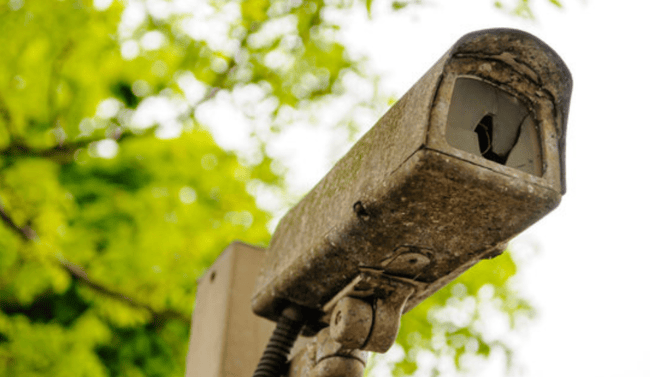
Why You Need to Upgrade Your CCTV Cameras
The risks of using old CCTV cameras are no secret. A slow, outdated legacy system can increase the chance of crime on your property and open up your business to serious threats and liability.


